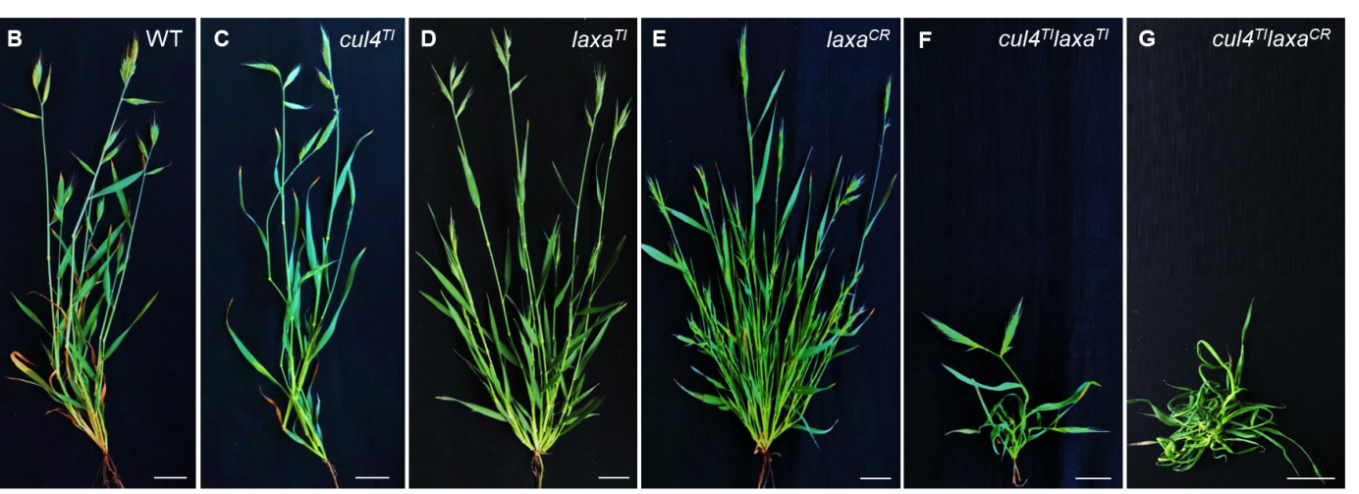BdCUL4 and BdLAXA are required for development
BrachypodiumdistachyonUNICULME4 and LAXATUM-A are redundantly required for development
In cultivated grasses, NOOT-BOP-COCH-LIKE (NBCL) genes are essential regulators of vegetative and reproductive development. In a study published in Plant Physiology (S. Liu et al.), the P. Ratet team extended its previous study of the two NBCL paralogs BdUNICULME4 (CUL4) and BdLAXATUM-A (LAXA) in the non-domesticated grass B. distachyon.
Through the study of single laxa CRISPR-Cas9 null alleles, we validated functions previously proposed for LAXA in tillering, leaf patterning, inflorescence and flower development, and also unveiled roles for these genes in seed yield. Furthermore, the characterization of cul4laxa double mutants, obtained by crossing or CRISPR-Cas9, revealed essential functions for nbcl genes in B. distachyon development, especially in the regulation of tillering, stem cell elongation, secondary cell wall composition, as well as for the transition towards the reproductive phase. Our results also highlight recurrent antagonist interactions between NBCLs in multiple aspects of B. distachyon development.

novembre 15, 2021
